Platinum Jubilee: Eight towns to be made cities for Platinum Jubilee
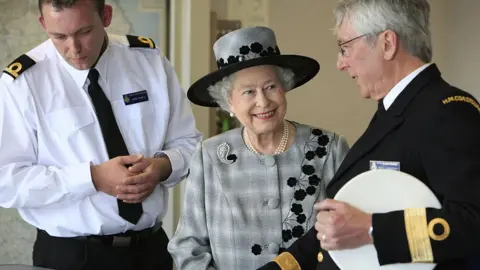 Getty Images
Getty ImagesEight new cities have been named for the Queen's Platinum Jubilee, with at least one in every UK nation - and on the Falkland Islands and Isle of Man.
Milton Keynes in England, Dunfermline in Scotland, Bangor in Northern Ireland and Wrexham in Wales all get the title.
It is a first for places in an Overseas Territory - Stanley, in the Falklands - and a crown dependency - Douglas, in the Isle of Man - to win city status.
Colchester and Doncaster complete the list getting the royal honour.
The Platinum Jubilee civic honours competition required applicants to show their cultural heritage and royal links as well as how their local identity and communities meant they deserved to be granted city status.
The new cities can expect a boost to local communities and the opening up of new opportunities for people who live there, the Cabinet Office said.
It cited research that suggested previous winner Perth, in Scotland, saw the local economy expand by 12% in the decade it was granted city status, after it put them on the international map as a place to do business.

The last competition to win civic honours in 2012 marked the Queen's Diamond Jubilee. For the first time this year, Crown Dependencies and Overseas Territories were allowed to apply.
The announcement of the latest civic honours takes the number of official cities in mainland UK to 76, with 55 in England, eight in Scotland, seven in Wales and six in Northern Ireland.
City status is often associated with having a cathedral, university, or large population, but there are no set rules for being granted the status, which is awarded by the monarch on advice of ministers.
"It's about the place rather than the numbers," said government minister Jacob Rees-Mogg when asked about the size of the smaller places on the list.
The winners and details from their bids for city status include:
Bangor, County Down, Northern Ireland
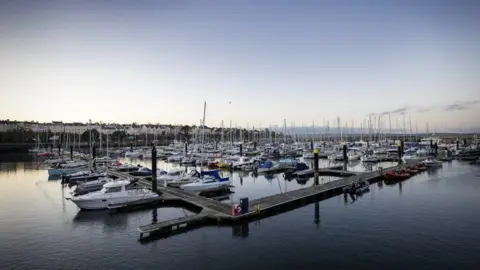 PA Media
PA Media- Due to its location at the mouth of the Belfast Lough, Bangor, with a population of 61,011, was a key site for the Allies during the Second World War
- In May 1944, Supreme Commander of Allied Forces Dwight D Eisenhower, who later became US president, gave a speech to 30,000 assembled troops in Bangor shortly before ships left for Normandy and the D-Day landings
- The Queen and Duke of Edinburgh visited Bangor Castle in 1961 and, after lunching at the Royal Ulster Yacht Club that day, the duke took part in a regatta race
Colchester, Essex, England
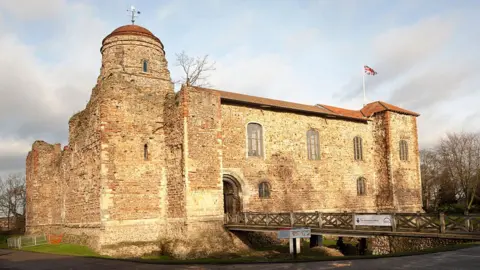 Getty Images
Getty Images- Colchester, with a population of 119,441, is Britain's first recorded settlement and its first capital
- It has been a garrison town for the past 165 years and for the past 21 years has been home to 16 Air Assault Brigade, the UK's rapid response force
- It is the second Essex town to become a city this year after Southend was given the status in October following the death of MP Sir David Amess, who often championed its campaign for city status
Doncaster, South Yorkshire, England
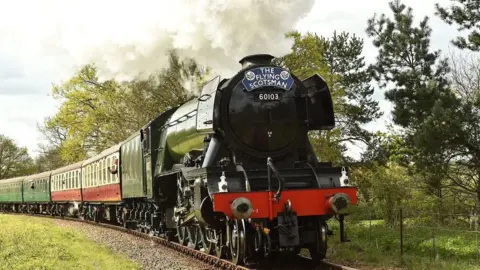 Getty Images
Getty Images- Originally a Roman settlement, Doncaster is almost 2,000 years old
- Doncaster and its surrounding boroughs currently have a population of about 311,000
- It is noted for its railway heritage, with the locomotives Flying Scotsman and Mallard both constructed there
- It is also home to the St Leger flat course. Founded in 1776, it is the oldest classic horse race in the world and has been attended by the Queen and other royals throughout history
Douglas, Isle of Man
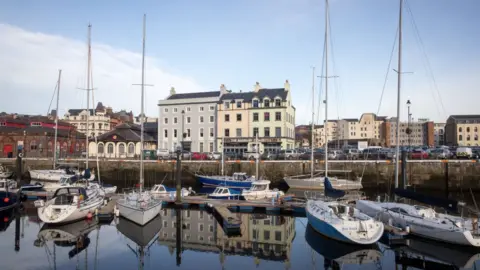 Getty Images
Getty Images- The Queen is patron of the Royal National Lifeboat Institution (RNLI) which started in Douglas, which has a population of 26,677 (2021 census)
- Its Royal Hall plays host to annual flagship concerts by the Isle of Man Symphony Orchestra, the Isle of Man Choral Society and the Manx Last Night of the Proms
Dunfermline, Fife, Scotland
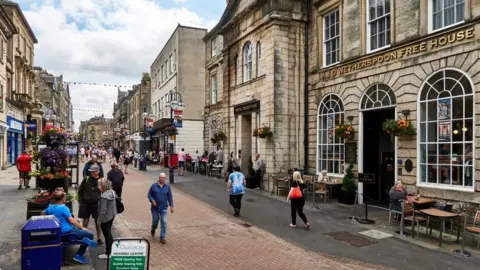 Getty Images
Getty Images- Its annual fireworks display attracts some 30,000 local people, while the Christmas light event packed the town centre with 10,000 people
- Dunfermline's most famous son is Andrew Carnegie whose steel industry helped build America. His philanthropy started the world's public library system, and he gave away the equivalent of £65bn in today's money
- Dunfermline, with a population of 58,508 was one of the seats of the kings of Scotland in the middle ages. Robert the Bruce was buried in Dunfermline Abbey after his death in 1329
Milton Keynes, Buckinghamshire, England
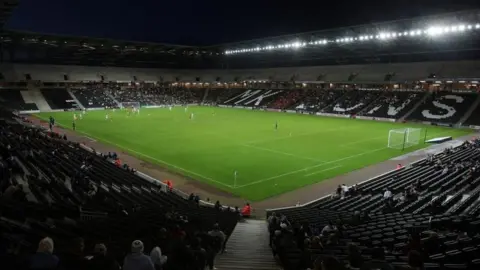 PA
PA- It was created in 1967 to alleviate housing shortages in overcrowded London
- With a population of about 280,000, it has 27 conservation areas, 50 scheduled monuments, 1,100 listed buildings and 270 works of public art
- The Open University, the world's first degree-awarding, distance learning institution, was set up in Milton Keynes in 1967; and its University Hospital NHS Foundation Trust established the nation's first independent medical school
Stanley, Falkland Islands
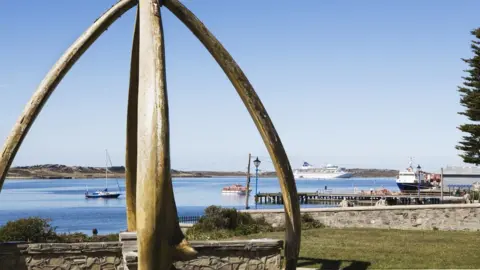 Getty Images
Getty Images- Members of the Royal Family have regularly visited the islands, including the late Duke of Edinburgh in 1957. In 2016, the Duke of Cambridge spent six weeks on the islands as a search and rescue helicopter pilot
- Holidays and events specific to the islands, which had a population of 2,458 in 2016 (according to its most recent census), are held annually - such as Peat Cutting Monday. The sacrifices made during the Falklands War are also remembered - 2022 marks 40 years since the conflict
Wrexham, north east Wales
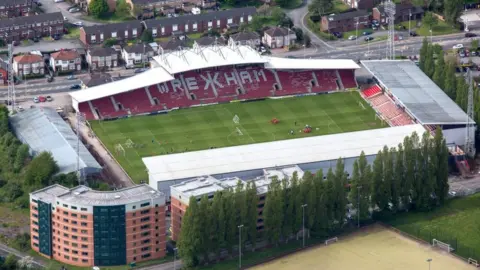 Getty Images
Getty Images- Established in 1864, Wrexham Football Club is among the oldest professional football clubs in the UK and is owned by Hollywood stars - the actor Ryan Reynolds and Rob McElhenney, creator of It's Always Sunny in Philadelphia
- The area, with a population of 61,603, is home to the Pontcysyllte Aqueduct, a Unesco World Heritage site
Almost 40 locations submitted bids for city status when applications opened last year.
Chelmsford, in England, Lisburn in Northern Ireland and Newport in Wales were among previous winners of the competition for city status - which has taken place during each of the last three jubilee years.
Each new city will receive the award formally through a Letters Patent, which will be presented later in the year.
Meanwhile, the city of Southampton has won the competition for Lord Mayoralty status - which means the mayor can be called Lord Mayor - joining the ranks of previous Jubilee competition winners including Chester, Exeter and Armagh.

- 'I LEFT THREE KIDS AND A WIFE I ADORE': Ukrainian tennis player who returned to defend his country
- 'I EARN MORE THAN MY FRIENDS WHO WENT TO UNI': Meet the young bricklayers building their lives

